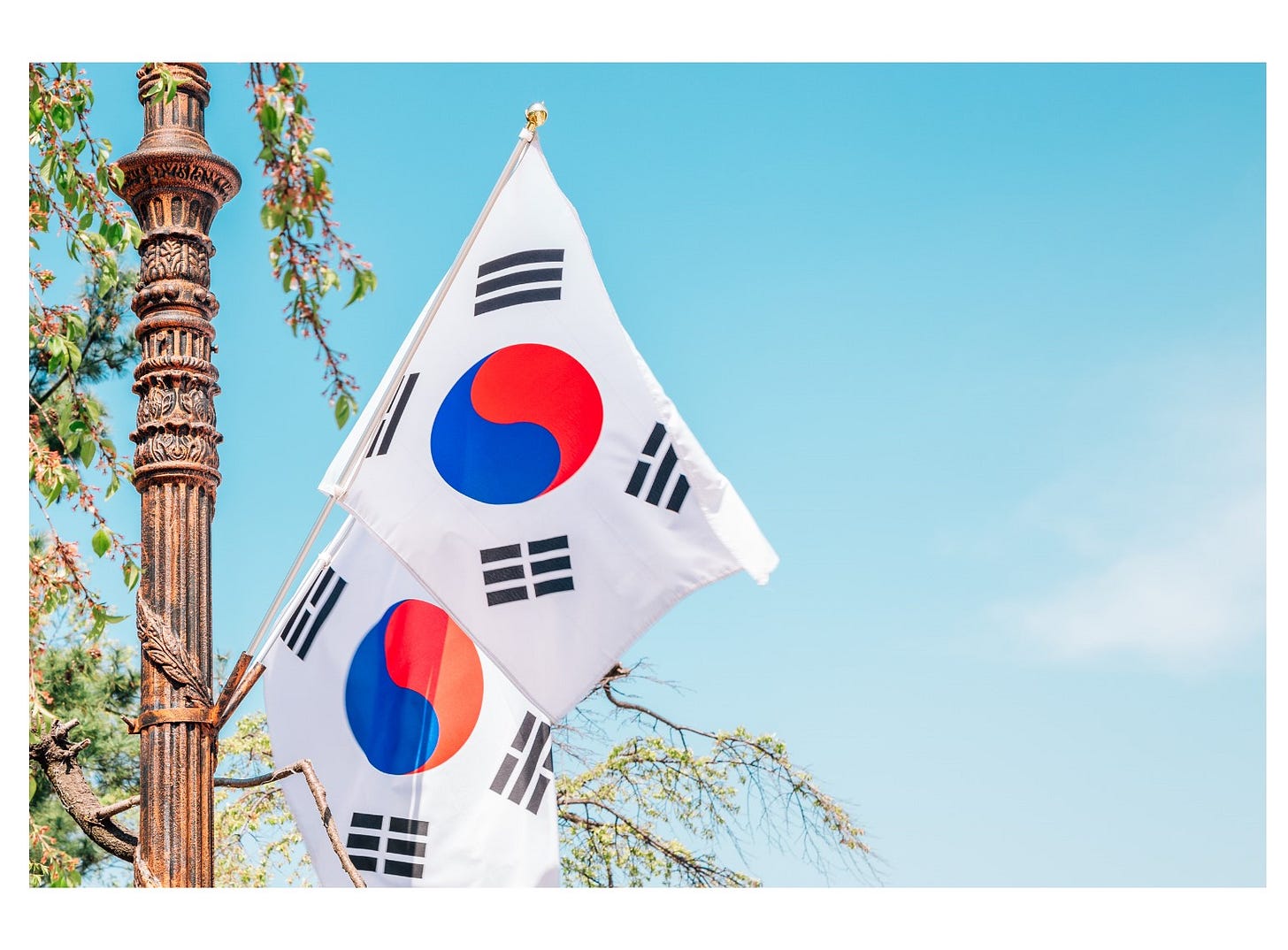Korea's Liberation Day
Learn more about the importance of the August 15th holiday that celebrates Korea's cultural and historical achievements.
Learn more about the importance of the August 15th holiday that celebrates Korea's cultural and historical achievements.
Sending greetings to all the “Like A Korean” language and culture enthusiasts out there!
Today, August 15th, is a very important day for all Koreans.
In this week’s newsletter, we will go back in time and give you a brief breakdown of why August 15th date is historical.
But before we get into it...
Just a reminder Like A Korean’s Fall semester, Classes start in September, and that is just around the corner. Like A Korean Academy has 5 classes to choose from according to your level.
Hangul Crash Course 9/19
Level 2 9/20
Level 3, 4 & 5 9/18
Click on the button below for more information or to save your seat.
The end of Japanese colonial rule in Korea, known as Gwangbokjeol (광복절) in Korean, is the subject of this week's newsletter. Today is a day of great significance and meaning for both the North Korean and South Korean governments. What is this celebration all about? Let's rewind the clock and start over.
The Occupation by the Japanese from 1910–1945
To fully grasp Gwangbokjeol, the past history of the Japanese occupation of Korea must first be discussed. Beginning in 1910, Japan placed colonial control over the Korean peninsula for the next 35 years. Because their culture had been suppressed and their economy suffered, the Korean people went through a lot during this time.
The Path to Freedom and Independence
The events of World War II marked an important turning point in the global politics of Asia. As Japan's war efforts grew more intense, a large number of Koreans were forced into labor and enlisted as soldiers; in addition, an untold number of young women were exploited as 'comfort women.' The longer the war went on, the better the odds became that Japan would be defeated and Korea would be free.
United States
The United States played a crucial role in the liberation of Korea both during and after World War II. The United States, the United Kingdom, and China issued together the Cairo Declaration in 1943 to announce their plan to end Japanese rule in Korea and restore Korean independence. After Japan's defeat in 1945, American forces helped pave the way for Korea's return to independence.
Soviet Union
The Soviet Union's decision to join the war against Japan in August of 1945 had a major impact on the liberation of Korea. The removal of Japanese forces from Korea was pushed forward by the occupation of the country's northern regions by Soviet forces. The Korean War and the next split of Korea into two states were primarily due to this event.
The United Kingdom
The international support for Korean independence was supported by the UK's involvement in the Cairo Declaration and discussions about post-war Asia. The declaration created the way for Korea's independence to be reestablished.
Allies in World War II, the Commonwealth countries of Australia, Canada, and New Zealand upheld the ideals outlined in the Cairo Declaration. Their contribution to the liberation of Korea was small in comparison to that of other countries, but their support was invaluable.
Others Countries
Others Countries such as India and Indonesia have publicly declared their support for Korea's independence movement. Their backing demonstrated the widespread desire for independence and decolonization. The Philippines understood the pain and suffering that the Korean people were facing. The Filipino soldiers were the first responders from the Asian region who made the first major contribution during the fight against Japan for independence and freedom.
When Japan surrendered to the Allies on August 15, 1945, it marked the end of both World War II and Japanese colonial rule in Korea. The colonial rule of Japan in Korea officially ended as a result of this event. Celebrations of the day Korea won back its independence continue to this day.
Freedom and hope for the future are celebrated at the Gwangbokjeol festival.
This day, known as Gwangbokjeol or "Restoration of Light Day," is observed as a national holiday in South Korea every year on August 15. A few of the ways to deal with it are briefly described below.
The Bell of Boshingak
The South Korean capital of Seoul rings the Boshingak bell in celebration of the event.
South Koreans display their country's flag, the Taegukgi, with pride wherever it is displayed.
A Momentous Public Event
A ceremony hosted by the government will take place in the nation's capital.
Pardon
On this day in the past, prisoners were given extraordinary pardons.
There is no need to pay to enter public museums or other attractions in any country.
Similar celebrations take place in North Korea, although they are known there as "Jogukhaebangui nal," or "Liberation of the Fatherland Day."
Conclusion
There will be celebrations and national reflection in understanding of Korea's historic victory over colonial rule. As a result, the 15th of August is celebrated as Liberation Day every year. We pause on this special day to honor the countless people who have worked hard over the years.
As we celebrate Gwangbokjeol this year, let us keep in mind the unity, hope, and freedom it represents. Gwangbokjeol is a symbol of the determination of the Korean people, which is further demonstrated by the country's long and illustrious history.
Come back next week as we explore another fascinating element of Korean culture and history. In the meantime, maintain your natural curiosity and thirst for knowledge.
Until next time Like A Korean readers!









